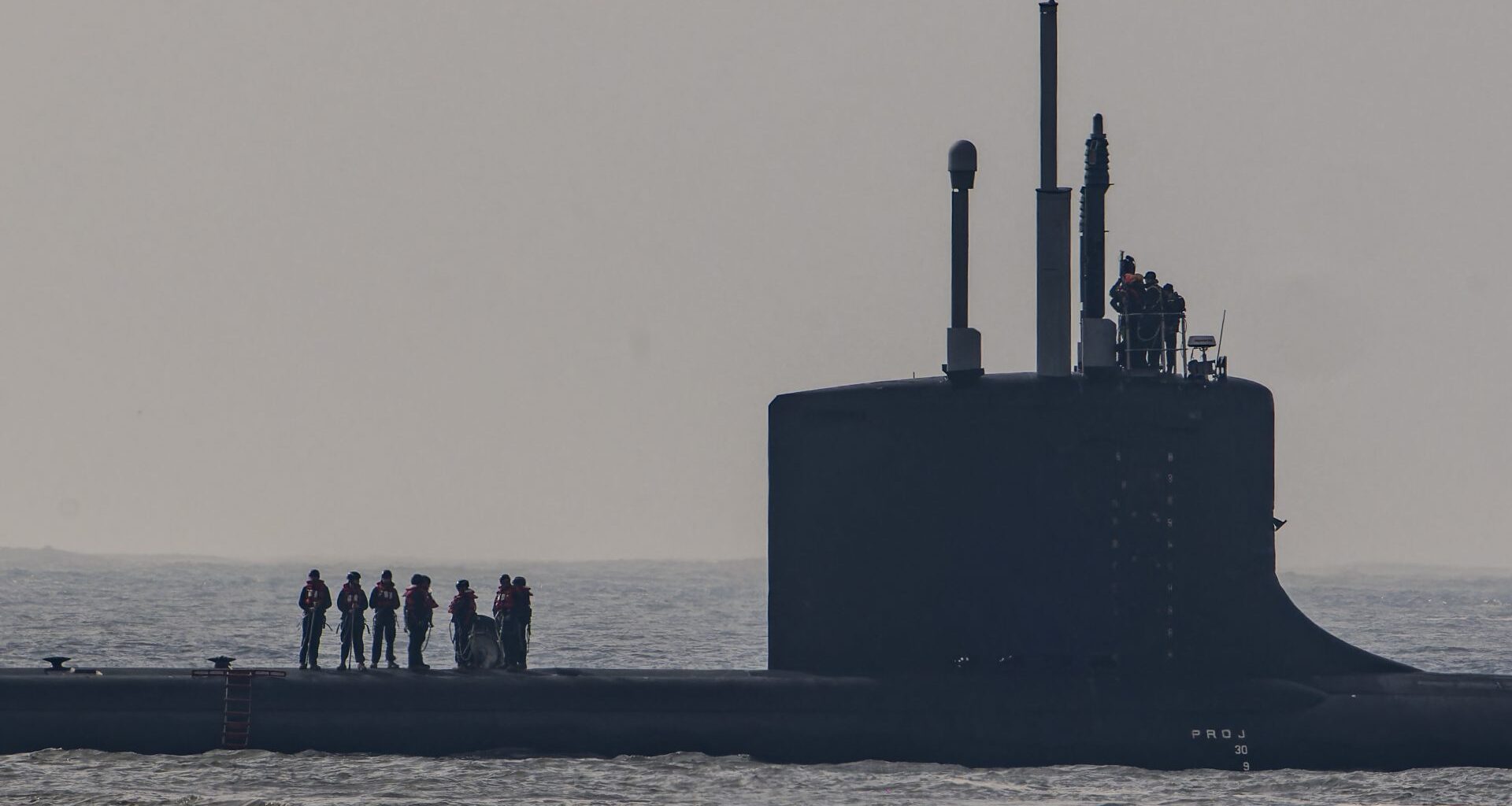Amid the pomp and preening of Donald Trump’s visit, one huge geopolitical issue remained unresolved: the future of Aukus – the deal between Britain, Australia and the US to provide Canberra with nuclear-powered attack submarines.
The project, which also involves the three nations sharing advanced technologies, including AI, quantum computing and hypersonic weapons, was placed under review by the US Department of Defense in June. With domestic opposition to it in Australia, and Trump’s foreign policy in the Pacific as mercurial as his commitments to Ukraine, the idea’s supporters fear it could be toast.
King Charles dropped a heavy hint during remarks he made at the state banquet, referring to the project as “the benchmark for innovative and vital collaboration”. Britain is clearly in favour.
Aukus has become the embodiment of American commitment to global leadership. By transferring nuclear technology to Australia, and basing its own attack submarines on the country’s western coast, the US moves a powerful chess piece close to China. Should the US pull out of Aukus it would be a victory for the isolationist wing of the Trump administration, who want to replace America’s perennial Atlantic-vs-Pacific dilemma with the answer: neither.
A nuclear-powered attack submarine can sink ships, sink other submarines, or attack land targets with cruise missiles, and since its propulsion system makes it virtually untraceable, it can stay submerged for months. The effect of the project – when it delivers from the mid 2030s onwards – will be for America to hold China’s navy and its cities at risk of conventional attack, should it invade Taiwan.
But though the US is tight-lipped on the reasons for the review, they are obvious to defence insiders. American hesitancy is not so much about the submarines and the tech, but about Australia. Are the Australian people prepared to defend Taiwan? Are they prepared to shoulder the costs of being only the seventh country with nuke-powered subs? And is political consensus in Canberra strong enough to sustain the project into the decades when China plans to dominate the world?
There are strong reasons for the UK to go on backing Aukus: it ensures work not just for the Barrow shipyard where the subs will be made, but for a huge supply chain, for decades to come; it puts the UK in a privileged position to share technological dominance with the US in certain sectors. And when the Royal Navy gets its new subs, they will contribute strongly to the UK’s conventional deterrence against Russia.
Long before then, however, the sprint to make so-called Pillar 2 of Aukus work will produce cutting-edge tech that we can use in the short term to bolster our defences against Russian aggression.
There is no question mark over Aukus for the current government – it has actively progressed the plan, and King Charles’s comments were a subtle nudge to Trump to get on with it. So it’s a question, once America takes its finger off the pause button, of explaining the strategic importance of what we’re about to do.
As one French expert put it recently, this is like announcing you are going to build a supersonic jet fighter in the year 1936: even if people can see it is possible, they may not see it as the most important thing to focus on in the short term. So here’s why I think we should embrace Aukus and make it work.
Aukus gives the UK asymmetric power. Yes, it makes us reliant on the US, a democracy that is fraying at the edges and ruled by an unpredictable narcissist. But the payoff will come in the mid-century, when all major countries are likely to be forced to define their futures in relation to the Chinese superpower, whose might will not just be military but scientific and ideological.
So if the US review concludes positively, I hope our government will go full-speed ahead on the project, using it to mobilise not only our industrial and technological base, but our universities, to start delivering early wins in the associated research projects.
Here it will need to carefully face down opposition to defence-related research: under pressure from students and some scientists themselves, some universities with defence and dual-use facilities are either nervous of expanding them or actively considering an end to such research. Others – like Cranfield and Sheffield – have built brand identities around doing defence and nuclear-related work.
That is why I was delighted to see the government commit to a Universities Defence Alliance – although with little detail – in its recent defence industrial strategy.
The rationale for this was outlined in a report from the Council on Geostrategy in March, which I co-authored. China has placed seven of its top universities under the control of its defence ministry. Needless to say, there are no ethical caveats and no dissent.
The result, according to the Australian Strategic Policy Institute (Aspi), is that China leads the world in 57 out of 64 categories of science with defence implications, ranging from advanced telecoms to nanotech to hypersonic propulsion.
I know Gen Z hates it when Boomers compare the present to the 1930s or the cold war, but unfortunately historical parallels are deeply relevant: when you fall behind in a technology race, sooner or later a totalitarian regime will start to kick your butt.
Ultimately, because Aukus is an alliance of three majority white, Christian countries, each of which has a record of violent colonisation, it would be a prime target for the proponents of “decolonisation”. So ultimately, beyond all the tech benefits and the 7,000 jobs it will create, Aukus will force the UK, and its people, to define who we are in the world.
If we believe we can be a force for good, holding together an alliance of willing democratic countries, and keeping the USA invested in collective European security, then building the biggest technological alliance in our history will be worth it.
